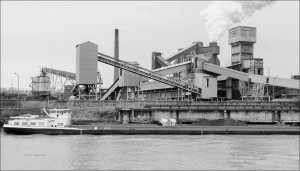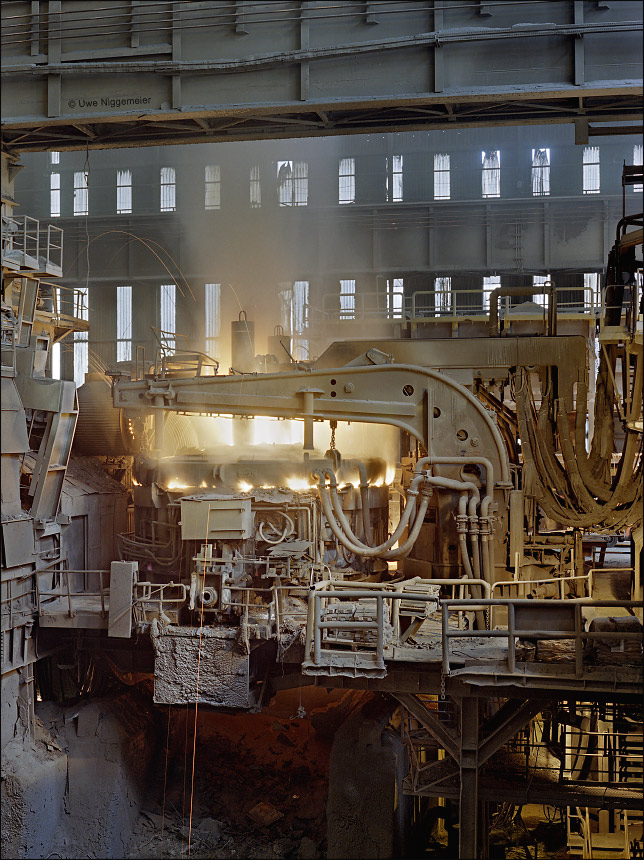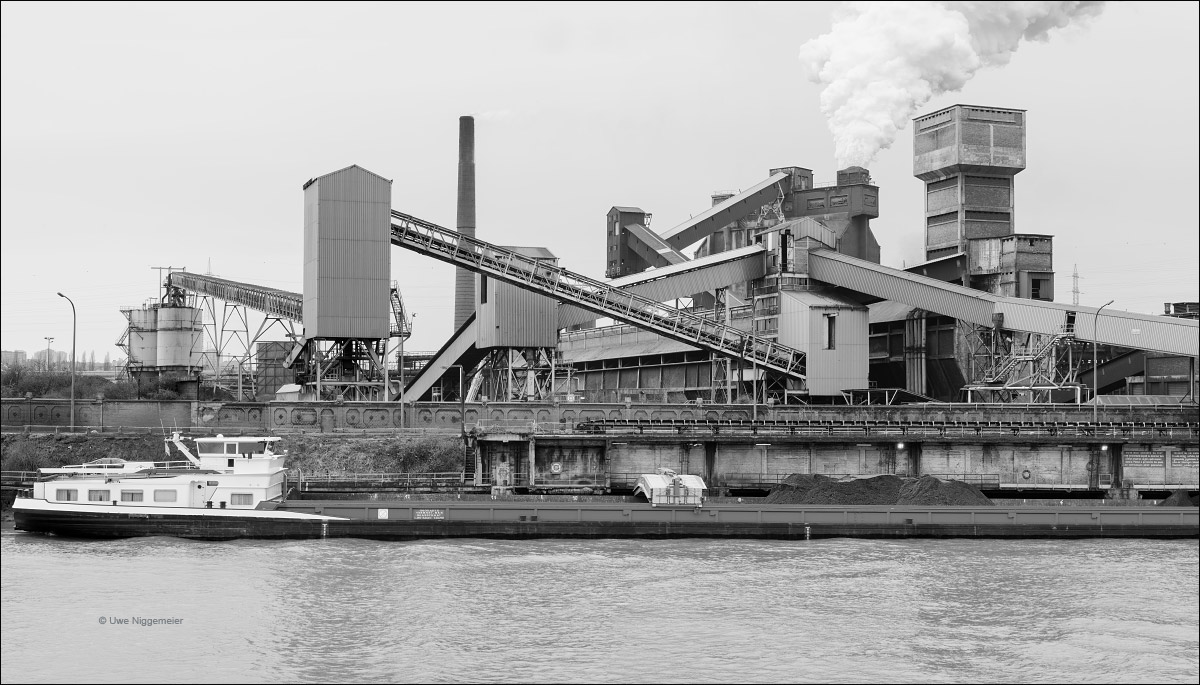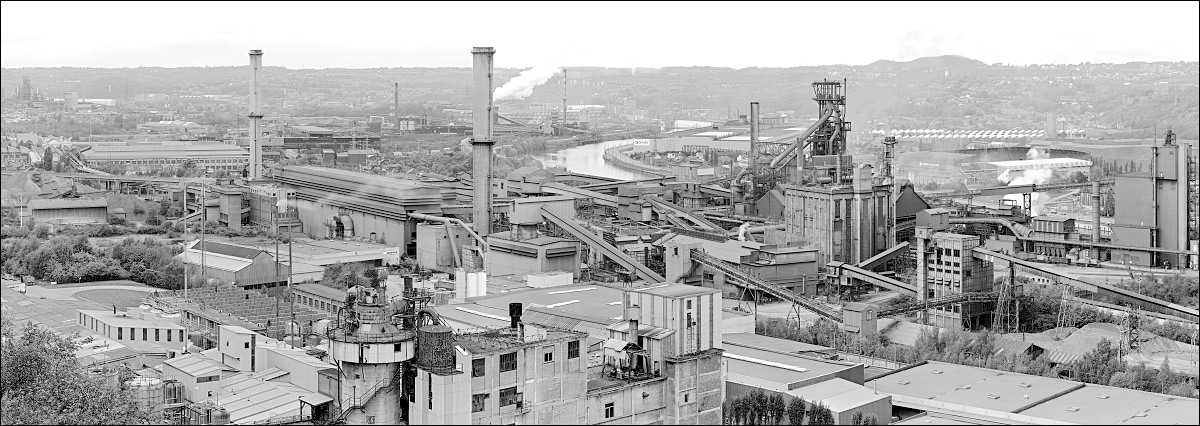Engineering Steel Belgium (ESB) in Seraing, Belgium announced that it will finally close down it’s steel making and casting facilities. Production is already down for two weeks.
The 70 ton electric arc furnace and the world’s largest round strand caster were built in 1972 by Cockerill to provide blooms for the Tubemeuse Pilger rolling mill across the river.
Tubemeuse was founded in 1911 under the name S.A. des Usines à Tubes de la Meuse. It was later taken over by Cockerill and went bancrupt in 1988. The mill carried on under the name New Tubemeuse until it filed bancruptcy again in 1993. The tube rolling facilities were closed down this time and the melt shop was sold to the Ellwood Steel company from Pennsylvania.
In 2009 the German GMH group bought the site.
Further viewing.
Five days ago ArcelorMittal already announced the closure of it’s coking plant in Seraing within the next two weeks. The attempt to sell the site (built in 1957) to the U.S.-based Oxbow company had failed.




